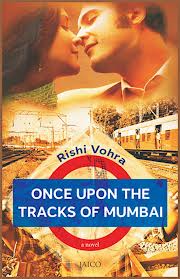 If you have read any of my reviews on Bangla books, you might be aware that Shirshendu Mukhopadhyay is one of my favourite authors. My admiration and awe for his writing cannot be described by just ‘favourite’. The author’s USP is his characterisation – you’d be amazed to get into their psyche peeling off layers from apparently mundane characters. They are people around us, but each with a different story to convey through their eyes or words. Have you ever read an entire novel on dialogues, without a single paragraph of narration? I’ve been learning not only the nuances of fine writing, but more about life in general from this octogenarian author’s works. There’s rarely been a story where he has failed to impress me as a reader.
If you have read any of my reviews on Bangla books, you might be aware that Shirshendu Mukhopadhyay is one of my favourite authors. My admiration and awe for his writing cannot be described by just ‘favourite’. The author’s USP is his characterisation – you’d be amazed to get into their psyche peeling off layers from apparently mundane characters. They are people around us, but each with a different story to convey through their eyes or words. Have you ever read an entire novel on dialogues, without a single paragraph of narration? I’ve been learning not only the nuances of fine writing, but more about life in general from this octogenarian author’s works. There’s rarely been a story where he has failed to impress me as a reader.
Jao Pakhi (Fly away, Birdie) is one of the more tender stories with lesser shock value from its characters. It’s the story of a young man named Somen. He’s a rookie just out of college with his dreams still shaping up. His father, a man ruled by his ideals, lives in a village building his own hut and growing his own crops. His mother, however, didn’t leave the city as she raised her two sons and a daughter, married them off and still lives with her family. She wants Somen to begin working and establishing himself in the world like his elder brother Ranen. She wants their father to hand them his money from a policy that is going to mature soon.


 I’ve read more about him than actually his stories as they’re in Urdu. The English translation by
I’ve read more about him than actually his stories as they’re in Urdu. The English translation by 
